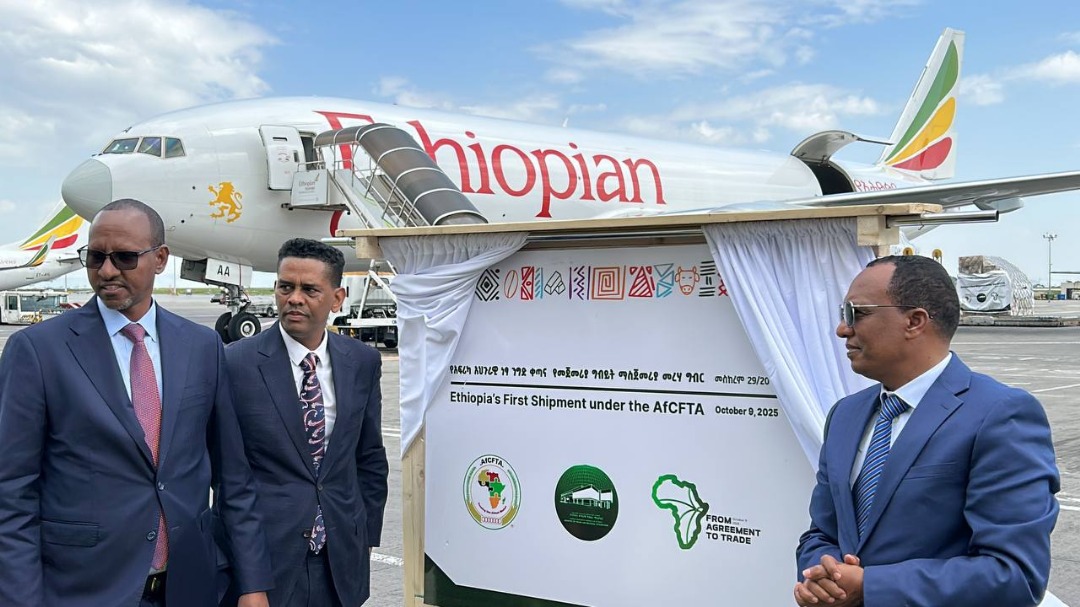- Ethiopia begins trading under landmark African free trade pact
- Move expected to accelerate economic diversification and regional integration
ADDIS ABABA, ETHIOPIA – Ethiopia begins trading under the African Continental Free Trade Area (AfCFTA), a milestone that opens the Horn of Africa nation to a $3.4 trillion single market.
The Ministry of Trade and Regional Integration said the first shipments – including meat, vegetables, fruits, coffee, pulses, and oilseeds – were dispatched to Kenya, South Africa, and Somalia by air and land through Ethiopian Airlines Cargo and road networks.
More than 40 exporters are participating in the initial phase, following seven years of technical preparation and negotiations.
“This is a historic moment for Ethiopia,” said State Minister of Trade and Regional Integration Yasmin Wahabrebi. “The AfCFTA gives our businesses an unprecedented opportunity to compete and grow in a continental market of over 1.4 billion people.”
Regional integration and economic potential
The AfCFTA seeks to eliminate trade barriers, harmonise customs regulations, and promote the free movement of goods and people across Africa. Member states are required to liberalise at least 90% of goods traded within the bloc.
Ethiopia joins 23 other countries that have reached this advanced stage of implementation — a move observers say could transform its export structure and speed up industrial diversification.
Industry experts believe the agreement can help Ethiopia reduce its dependence on traditional exports such as coffee and livestock, encouraging a shift toward value-added manufacturing and services.
“Launching AfCFTA trade is the easy part – the bigger challenge is ensuring competitiveness,” said Gizeshwork Tesema, CEO of GIZE PLC, a global logistics company. “Ethiopian exporters must adapt to higher quality standards, efficient logistics, and regional value chains if they want to win in this market.”
But she cautioned that infrastructure bottlenecks and non-tariff barriers could limit near-term gains. “For Ethiopia to fully benefit, investment in transport corridors and customs modernization will be crucial. Without these, our exporters risk losing ground to better-prepared competitors in East and Southern Africa,” she said.
Long-term prospects and challenges
According to the United Nations Economic Commission for Africa, the AfCFTA could boost intra-African trade by 52% by 2030. Ethiopia’s participation is expected to create new opportunities for small and medium-sized businesses, attract investment, and enhance its role as a regional logistics hub.
The government also plans to expand AfCFTA implementation into services – including finance, telecommunications, and transportation – sectors that could further integrate Ethiopia into continental supply chains.
Exporters are already eyeing new markets in West Africa as trade lines expand. However, analysts warn that patchy adoption across member states, high logistics costs, and Ethiopia’s ongoing foreign exchange shortages could temper early optimism.
“This is not just about moving goods across borders – it’s about redefining Ethiopia’s place in Africa’s economic future,” Gizeshwork said.











